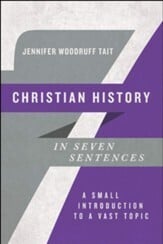Doctrinal Differences in Theologies of Work According to Graeme Smith
Academic Paper / Produced by Individual TOW Project member
Scholars who have developed theologies of work during the last fifty years have approached the Bible in different ways and employed a variety of different hermeneutical principles. Graeme Smith has identified some of the areas of doctrine in which these divergencies are particularly pronounced. This section is a summary of Smith’s conclusions (Smith 1990: Chapter 5.2 - 5.12).
Different views of Creation.
Conservative theologians tend to adhere to the view that creation was completed at the beginning, thus debarring any human involvement in the creation process. Cocreationists on the other hand view creation as a continuous activity to which humanity contributes. Some, such as Paul Marshall, waver between the two positions.
Different Evaluations of the Importance of Work before the Fall.
Many theologies of work make much of the significance of the Divine charge in Genesis 1 to 'have dominion' and 'subdue the earth'. This commission is linked with what it means to be made in 'the image of God'. This is of particular importance to cocreationists and leads Smith to suggest that there has been an over-emphasis on the early chapters of Genesis in recent theologies of work and the notion of 'the image of God' has wider significance than most of these works suggest. He also notes how the dominant view contrasts with that of Ellul who argues that work before the Fall was of a totally different character.
Differences in Understanding the Impact of the Fall.
The way writers interpret the significance and enduring relevance of the Fall follows largely from their understanding of creation and work prior to the Fall. Most agree that while the Fall has made human work less comfortable, it does not overwhelm its primary purpose as the means by which humanity contributes to God's continuing activity. In opposition to this Ellul maintains that the Fall impacts upon all human work and means all work is 'under the curse'. Marshall's assessment results in ambiguous conclusions.
Genesis 1-3 is overemphasised at the expense of Genesis 4-11.
The theologians of work tend to weight their analysis very heavily towards Genesis 1-3 to the exclusion of other important segements of Genesis 4-11, such as the Tower of Babel story. Smith notes the failure to provide a more comprehensive exegesis and interpretation. He also questions whether the narratives condensed and smoothed by centuries of oral tradition provide a sufficient foundation on which to build a detailed interpretative edifice.
The Diversity of Work Traditions in the Old Testament is Ignored.
Recent scholarship maintains that there are diverse traditions with distinct emphases in the Old Testament. For example, Agrell comments in relation to Genesis 2-3 that this is 'a fine portrayal of the two-sided nature of work' (Agrell 1976: 15). It has 'a positive base, by which “work” is service to God, independent of the struggle for maintence, and free of suffering. It has as its base the Lord. But it has as well a negative side, by which work is bound up with disobedience towards God, the necessity of producing sustenance, and where it is synonomous with suffering (Agrell 1976: 15). He goes on to argue that this dualistic outlook is the basic model of work throughout the Old Testament: 'we find here approximately the same tension as in Genesis 2-3, between work on the one hand as God-given, joyful and good, and, on the other, as hard, necessary, meeting with failure, and capable of leading to idolatry (Agrell 1976: 31).' Theologians of work clearly experience great difficulty in embracing the dualism or ambivalence of Old Testament teachings on work. For conservative scholars who adhere to the unity of scriptural teaching on such matters this provides a stumbling block. But less conservative scholars also fall into the trap of selectively using only those texts or interpretations which support their view and hence fail to express the diversity of traditions which are apparent. We do well to heed Chenu's warning, that
the books of the OT provide the most disparate judgements on man's work. It is impossible to give an abstract classification of these teachings; it is better ... to point to the various social settings in which they evolved ... almost any conclusion can be drawn from these texts; in fact, Judaeo-Christian thought throughout the ages reveals the relativity of the conclusions and prescriptions that theologians, catechists and teachers have drawn from them. (Chenu 1970: 369)
The fact that Jesus worked is over-emphasised whereas His relevant parallel teachings are under-emphasised.
There is a tendency to expand upon the scanty references to Jesus' work. Ellul is opposed to this. Other Biblical scholars are also hesitant about this. Westerman in discussing Luke 12:13-41 points out that Jesus rejects the undue importance given to work (Westerman 1980: 90). Others point out that Jesus called his disciples away from their occupations and he himself left the carpenter’s shop to pursue unpaid work. Agrell in his summary of the teaching of the synoptic Gospels also concludes that the ambivalence evident in Genesis and the rest of the Old Testament persists. For Agrell, work has secondary significance for Jesus and his disciples; it may be necessary for most in this age, but one should not get too involved in it. And toil will cease in God's kingdom. The teaching of Matthew 6:25-34 is regarded as representative (Agrell 1976 :92-94).
Variation in Understanding the Relationships between Human Work and Soteriology.
The link between human work and salvation in Jesus is evident in Catholicism since the Middle Ages, partly through the Catholic doctrine of recapitulation. This tradition which continues in Laborem Exercens (John Paul II 1981), is anathema to conservative Protestants for whom divine action and human action are clearly distinct. However Moltmann has recently explored the interplay between human work and divine redemptive action. He concludes, 'human beings through work and self-giving participate in the Lordship of Christ in the world and thereby become co-workers in God's kingdom which completes creation and renews heaven and earth....all work is filled with the hope of the Kingdom of God ... it receives through faith a 'messianic meaning' (Moltmann 1985: 44-45)'. And despite his vigorous opposition to cocreationism, even Ellul late in his life was drawn through his study of the book of Revelation to conclude that human work is linked to God's work in some way and there is some degree of continuity between work in this life and in the coming age.
Paul's Attitude to Work is under-emphasised.
Contemporary debate has tended to focus on the question to what extent can human work be seen as an extension of God's creativity? Smith suggests that this is why Paul's teaching has tended to be ignored, because Paul's emphasis on duty and obligation fits more comfortably into the traditional schema as a corollary of the curse and the divine command. But even for those who do discuss Paul, quite different conclusions are drawn. Barth concludes that Paul has a negative view of work; 'Paul has no positive interest either in work itself or in its achievements (Barth 1961: 600).' Agrell, on the other hand, sees in Paul a more realistic approach to labour than he sees in Jesus. Paul accepts the necessity of such labour and combines it with his apostolic task (Agrell 1976: 114). Paul's view of manual labour is still negative, but he is able to incorporate it into his life in Christ. Smith concludes that Paul esteems the economic independence which comes from work. He also adds that this may have been more to do with Paul’s desire to avoid criticism than with any theology of work. Paul accepts the necessity of work, and seeks to apply the Gospel to the work setting that he sees around him. It is suggested that Paul could not envisage any alternative structure of work. What we get from Paul is not a theology of work, but an example of the limited application of the Gospel to a particular structure of work.
The Link Between Human and Divine Creativity is Interpreted Differently and Generally Inadequately.
The co-creationist position depends on maintaining the link between human and divine creativity. Smith maintains that recent theologies of work tend to examine God's physical creativity only, but ignore the work of God in
Fashioning a people for himself ... God is the builder of personhood and community. The "new creation" of the New Testament is new personhood in community with others. By focussing only on God's physical work, the major thrust of God's creative work in the world is overlooked. Co-creation would take on a richer and more radical meaning if the link was drawn with these wider dimensions of God's work. (Smith 1990: 100)
The Rest Tradition is Under-emphasised by the Co-creationists.
There is a separate 'rest' tradition in the Bible. Some argue that it is a more prominent theme than work. Co-creationists tend to minimise the relative importance of this tradition. Marshall seeks to give it an equal footing with work, even though this attempt is not completely successful. Ellul uses it to oppose the work tradition. Moltmann argues that 'the Sabbath does not simply interrupt work. Rather, work is understood and defined through the Sabbath (Moltmann 1984: 40).' A proper assessment of the biblical picture of rest will qualify or moderate some of the co-creationist conclusions regarding work.






